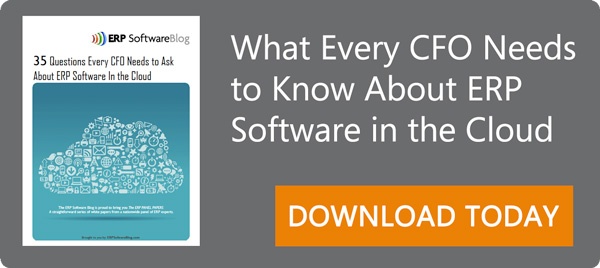With the Net Neutrality order struck down, online business owners may be subjected to paying more for their websites or content to be delivered at high speed to their users by telecoms companies. Another possible scenario will be an uneven playing ground for companies that are not friendly to the telecoms providers. For example, a company that provides a competing service to that of Verizon’s may have its traffic ported to a competing site or may have to pay very high fees for its website to be accessed.
The Impact of the Net Neutrality Ruling on ERP
ERP organizations that deliver their software on the cloud are likely to be impacted by the new rules. While Netflix has been on record urging ISP providers not to play the bad guy in light of the January ruling, it is only a matter of time before ISPs put content providers in clusters similar to that of cable companies that deliver their content at different speeds.

In the manufacturing sector, the ruling may not have a direct impact on organizations that use on-premise systems. However, any ERP delivered on the cloud or that requires Internet connectivity is likely to be affected. Below are some of the possible scenarios ERP users may soon be seeing:
i) Limited ERP Traffic. ISP providers can cap the traffic sent to cloud ERP. In such a case, organizations that rely on cloud ERP software for their daily operations may have to incur additional costs to ensure their traffic is not capped. On the flip side, organizations may have to limit how often ERP is accessed in order to stay within the traffic limits, which ultimately means decreased efficiency.
ii) Disconnected ERP Operations. One of the benefits of cloud ERP is that the software can be accessed from anywhere around the world, as long as the user has access to an Internet connection. With the new ruling, ISP providers can choose to block traffic from different geographic regions. Organizations operating interstate or across different countries may need to pay extra for their “out-of-coverage” employees to access the ERP software.
iii) Unfair Competition. ISP providers will also have a hand on the content that can be accessed by consumers. This can lead to unfair competition, with companies affiliated with the ISPs being favored over others. For example, if an ERP company has a partnership deal with one of the ISPs, the ISP may lock out other ERPs on the network from being accessed by consumers.
iv) Poor ERP Delivery. With ISPs at liberty to determine the speeds at which consumers access content online, ERP companies that may opt not to pay a premium to the providers can see their content delivery disrupted. The ISPs can deliberately put the cloud ERP in the “slow lane,” thus affecting user experience and making it difficult to perform basic data functions. The net effect of this will be reduced productivity.
v) Increased Cost of Doing Business. Most ERP service providers are hosted on infrastructure provided by IaaS companies like Amazon Web Service. With the new ruling, ISP providers may require IaaS providers to pay more for the substantial content and apps they deliver. If the companies do not pay, then there may be a cap on the amount of content that can be delivered through the ISP networks. If an IaaS provider agrees to pay higher fees, the fee is likely to be passed down to the app owners and ERP providers, who will ultimately pass the cost to the end-user.
Net Neutrality has a big impact in the manufacturing industry. With the ruling, manufacturing organizations may have to contend with higher costs of doing business or risk losses through reduced productivity and efficiency when they cannot optimally use the ERP software.
 How Will Striking Down the Open Internet Order Affect Cloud ERP Software?">
How Will Striking Down the Open Internet Order Affect Cloud ERP Software?">
